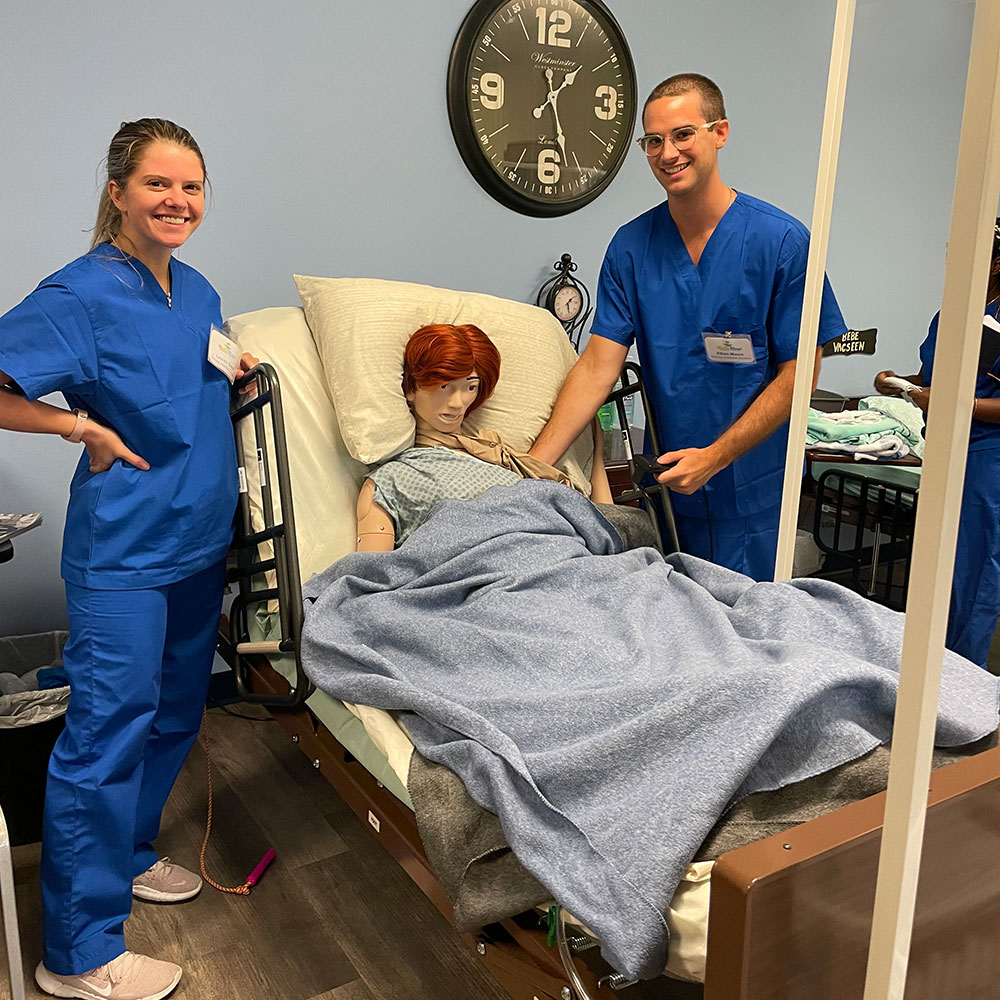How CNA Classes Train You for the State Certification Exam
Wiki Article
How CNA Classes Can Assist You Launch an Effective Career in the Clinical Field
CNA classes work as a foundational stepping rock for individuals aiming to enter the clinical field (CNA Classes). These programs convey vital abilities, consisting of efficient communication and personal care methods. Pupils take part in hands-on training, connecting theory with practical application. As the need for healthcare experts expands, the duty of a Licensed Nursing Assistant becomes increasingly significant. This questions regarding the various occupation paths and advancement opportunities that exist in advance for those that finish their trainingComprehending the Function of a Qualified Nursing Aide
The function of a Licensed Nursing Assistant (CNA) is integral to the health care system, acting as a vital web link between clients and clinical personnel. CNAs largely help people with day-to-day tasks such as showering, dressing, and eating, ensuring their comfort and dignity. They are frequently the first factor of contact for clients, supplying indispensable psychological support and friendship. Along with individual care, CNAs are accountable for checking clients' essential signs, reporting modifications in problem to nursing team, and keeping patient records. Their tasks prolong to guaranteeing cleanliness in individual settings and assisting with movement. This function needs a caring disposition, solid interaction skills, and the capability to function efficiently under pressure. By promoting a smooth process within health care setups, CNAs play a considerable part in boosting the total individual experience and sustaining the broader clinical group in providing top notch treatment.Trick Abilities Obtained in CNA Courses
In addition, CNA programs stress individual care skills, including help with daily living tasks such as bathing, dressing, and feeding. CNA Classes. Infection control techniques are another important component, making certain that trainees understand how to maintain a secure environment for both patients and themselves
Additionally, students acquire understanding in basic medical terminology, assisting in better understanding of healthcare practices. Time management abilities are grown to assist CNAs prioritize jobs effectively. In general, these crucial abilities create the foundation for a successful occupation in the clinical area, preparing pupils to satisfy the diverse demands of clients.
The Advantages of Hands-On Training
Getting functional experience via hands-on training is crucial for striving CNAs, as it links the void between academic knowledge and real-world application. This immersive learning strategy makes it possible for students to develop crucial skills needed for client treatment, such as efficient interaction, compassion, and technological capabilities. Engaging in real-life scenarios allows trainees to comprehend the characteristics of a medical care environment, promoting self-confidence in their capacities.Hands-on training helps trainees become familiar with important devices and procedures, ensuring they are well-prepared for the difficulties of the work. It likewise supplies possibilities to get instant comments from trainers, improving the learning experience. By functioning straight with people under guidance, aiming CNAs can sharpen their observational skills and learn to react to various situations suitably. Ultimately, hands-on training outfits these future healthcare experts with the proficiency and assurance essential to be successful in their roles.
Profession Opportunities After Coming To Be a CNA
Various profession chances wait for people that finish their CNA training, opening up doors to various duties in the health care field. Certified Nursing Assistants (CNAs) are crucial participants of the health care group, offering direct client treatment in settings such as hospitals, nursing read the full info here homes, and aided living facilities. have a peek at this website Their obligations can include assisting with daily living activities, keeping an eye on important indicators, and providing psychological support to clients.Past conventional settings, CNAs may likewise discover possibilities in specialized locations, such as rehabilitation centers or home health treatment. Furthermore, some may move into roles in management support or patient advocacy, leveraging their direct experience with clients. The need for CNAs remains to expand, driven by a maturing populace and an increased concentrate on quality client care. This high demand warranties that people going into the field have a range of options to go after, making it an eye-catching entry factor into a satisfying career in health care.
Pathways for Development in the Medical Care Area
Advancement in the healthcare field provides several pathways for people seeking to enhance their jobs past the duty of a Qualified Nursing Assistant (CNA Classes). After obtaining experience, several CNAs decide to seek further education and qualifications, such as becoming a Licensed Nurse (LPN) or Nurse Practitioner (REGISTERED NURSE) This shift usually includes signing up in linking programs that acknowledge their existing abilities
Constant professional advancement with workshops and workshops can maintain CNAs updated on sector criteria, making them much more affordable prospects for innovation. Subsequently, the healthcare field provides numerous avenues for development, making it possible for CNAs to form their career trajectories efficiently.
Regularly Asked Inquiries
For How Long Do CNA Classes Normally Take to Complete?
CNA courses typically take in between four to twelve weeks to finish, relying on the program structure. Variables such as course intensity, scheduling, and the institution's curriculum layout can influence the overall period of training.What Is the Cost of CNA Training Programs?
The expense of CNA training programs varies widely, typically varying from $300 to $2,000. Elements influencing this price consist of location, program size, and whether the training is supplied via neighborhood colleges or exclusive organizations.Are Online CNA Courses Available?

What Is the Qualification Test Process Like?
The certification examination process normally includes a written test assessing understanding and a skills demo. Candidates have to pass both parts to become certified, ensuring they satisfy the necessary competencies required for nursing aide functions.Do I Need Prior Health Care Experience to Enroll in CNA Courses?
Prior healthcare experience is not a requirement for click to read more registering in CNA classes. People from different backgrounds can enter the program, as it is developed to give comprehensive training and expertise essential for successful certification and method.Report this wiki page